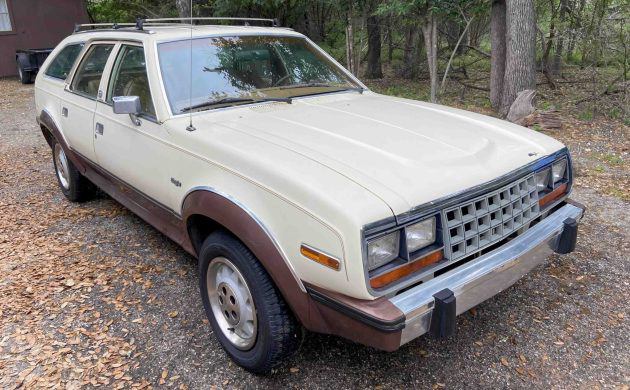
- Seller: Matt N (Contact)
- Location: Austin, Texas
- Mileage: 63,432 Shown
- Chassis #: 2CCCK3856GB706587
- Title Status: Clean
UPDATE – The seller has added underside photos to the photo gallery.
Do you need 4×4 levels of off-road and snow-fighting capabilities but don’t want to drive an unwieldy SUV or truck? Then an AMC Eagle Wagon might be the vehicle for you! These unique vehicles were offered in both sedan and wagon form. So, if you also need space to haul car parts, luggage, or your dog, the station wagon version will check off all the boxes. This example has been parked for the past decade, so it will need to be revived, but having lived its life in New Mexico, it’s solid throughout. The time has come to move it on to a new home where it can be driven and enjoyed, so it’s being offered here as a Barn Finds Auction!
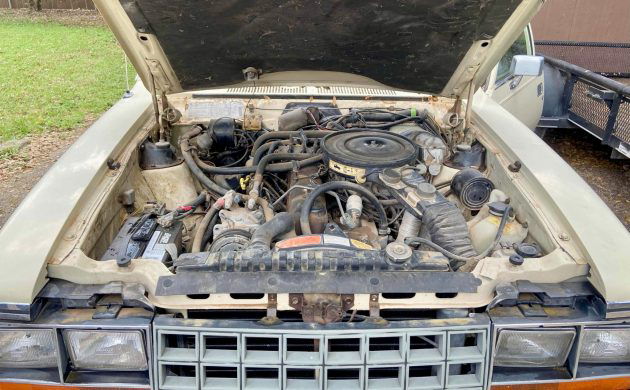
The seller’s parents purchased this Eagle in Ruidoso, New Mexico, in the mid-1990s, with just over 20k miles showing on the odometer at the time. It was their daily driver around Roswell, New Mexico, until the late 2000s. The car developed an issue where it would start and run for short drives but then sputter and die. Their father tried to diagnose the problem, but deteriorating health kept him from finding the cause. It could be a bad fuel pump, a vacuum leak, or even a faulty ignition coil. Given the issue, the seller lists it as not running, just to be safe. They have changed the oil and attempted to start it. While it turns over as it should, it won’t fire. Given how bulletproof the AMC 258 inline-6 is, chances are it won’t be challenging to get running again.

Mounted behind the inline-6 is a 3-speed automatic TorqueFlite transmission paired with a single-speed center differential. While it lacks a low range, the viscous coupling system engaged smoothly and ran quietly. The system worked so well that these vehicles earned a reputation of being able to go just about anywhere, and reviews at the time compared them to mountain goats.
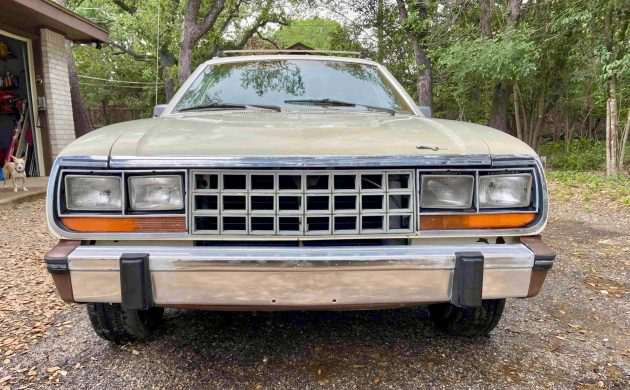
As capable as they were, these cars weren’t without their Achilles heel. They tended to rust (a life battling snow and salt-covered roads can do that), and the interiors didn’t always hold up well. New Mexico’s arid climate means this Eagle likely didn’t see much snow, and it shows. Some spots of surface rust are showing, but there don’t appear to be any significant issues.
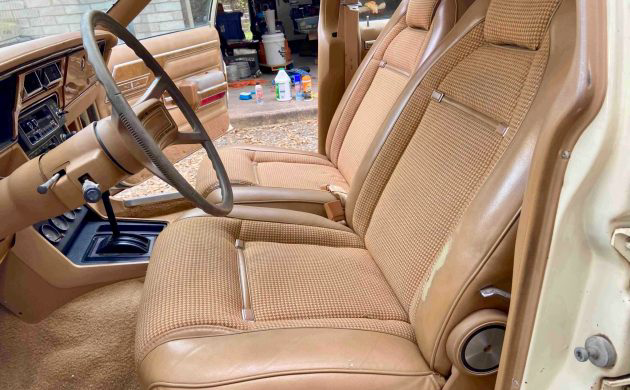
This Eagle must have been parked inside during its recent slumber. The interior shows signs of wear, about what you would expect for a car with 63k miles, but it doesn’t appear to have suffered sun damage. The seller notes that there’s a crack in the dash by the mirror adjustor, the driver’s seat has some damage to the bolster, and the headliner will need to be replaced. On the upside, these issues won’t keep you from driving and enjoying it. They also state that the radio, manual wind windows, and all electronics work as they should. There’s no way to know if the A/C will work without getting the car running, but it worked great when it was parked.
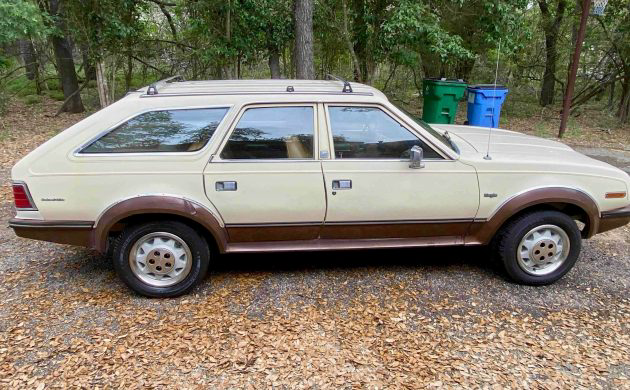
The seller recently moved the car from Roswell to their home in Austin, Texas and it comes with a clean title. This looks like a great project that could be a good daily driver, winter warrior, or occasional cruiser with minimal work. So, if you’d love to have it, be sure to bid below and leave any questions for the seller in the comments below.
Bid On This Auction
 NancyJo Allison bid $5,400.00 2024-04-11 09:40:08
NancyJo Allison bid $5,400.00 2024-04-11 09:40:08 Lee bid $5,025.00 2024-04-09 23:54:08
Lee bid $5,025.00 2024-04-09 23:54:08 Fitz bid $4,775.00 2024-04-08 13:12:26
Fitz bid $4,775.00 2024-04-08 13:12:26 NancyJo Allison bid $4,500.00 2024-04-08 03:22:26
NancyJo Allison bid $4,500.00 2024-04-08 03:22:26 Sam bid $3,250.00 2024-04-06 11:18:18
Sam bid $3,250.00 2024-04-06 11:18:18 Cmarv bid $3,000.00 2024-04-06 01:05:54
Cmarv bid $3,000.00 2024-04-06 01:05:54 Charles13 bid $2,500.00 2024-04-05 21:52:43
Charles13 bid $2,500.00 2024-04-05 21:52:43 Fitz bid $1,875.00 2024-04-05 21:32:19
Fitz bid $1,875.00 2024-04-05 21:32:19 Charles13 bid $1,500.00 2024-04-05 20:22:19
Charles13 bid $1,500.00 2024-04-05 20:22:19 Fitz bid $876.00 2024-04-05 15:07:52
Fitz bid $876.00 2024-04-05 15:07:52 Volvoman9 bid $600.00 2024-04-05 10:30:30
Volvoman9 bid $600.00 2024-04-05 10:30:30 Charles13 bid $300.00 2024-04-05 08:21:30
Charles13 bid $300.00 2024-04-05 08:21:30
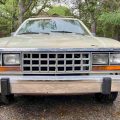
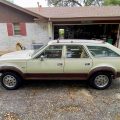
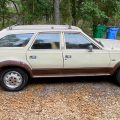
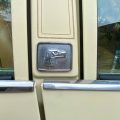
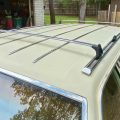
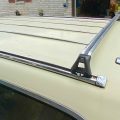
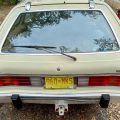
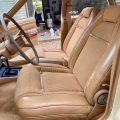
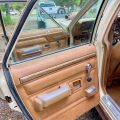
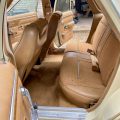
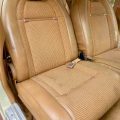
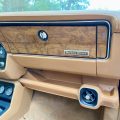
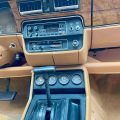
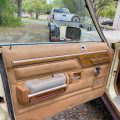
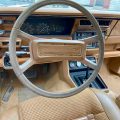
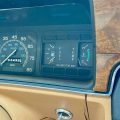
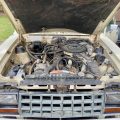
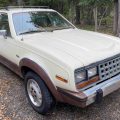
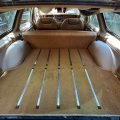
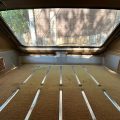

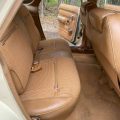
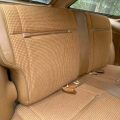
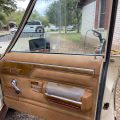
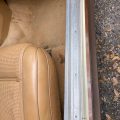
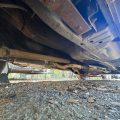

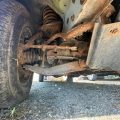





There was also an AMC Eagle coupe from 1980-1982.
These rigs have always been cool and was a precursor to todays modern SUVS. It’s in pretty nice shape considering, so I’d definitely be interested in picking this up early the right price.
Back in 2000 a co-worker came into the office and said he’d bought a new car. When I asked him what it was he replied, in a dejected tone, “An Eagle.” Being a fan of eclectic cars I thought it was cool! And it looked like this one! GLWTA!
There is a known problem with the Carter BBD carbs on these and period Jeeps where the idle tubes clog up and the engine won’t idle or run properly at low speed. The factory fix is to drill the idle tubes out slightly larger after cleaning. I had this happen on an Eagle I owned years ago and the fix worked. I wonder if that’s at least part of the problem with this car.
https://www.jeeptech.com/engine/carter.html
For reasons that I’ve never seen explained, for 1986 only the Eagle came with an open diff transfer case instead of the viscous coupling employed other years. This means that if you lose traction on one wheel you’ll sit there in your AWD vehicle spinning that one wheel. I owned a 1986 model and found that it rarely happened even under slippery conditions but it can happen,
I always enjoyed the look of these. I’d love to have this one for a snow dog in Western PA. Question: is the rear deliberately contoured that way, or has this one been hit? It looks strange in the photos.
That’s the way they were
possible to get some underside photos, esp backside of rockers? glass all good stars chips cracks wear marks, foggy? GLWTS
Thanks for your question, the windshield, side, and hatch glass is all in good shape without any chips, cracks, or clouding.
Lovely looking car. Although I was too young at the time to drive a car, I remember the AMC Eagle. Despite its dated appearance, I found the car way better looking than most cars of the era. Assuming the car runs and drives under its own power, I’d be willing to pay close to $1000 or more than that depending on condition. I’d keep what can be kept stock original, while also upgrading other things.
A 87 Eagle wagon with woodgrain was my first car. Paid $800 for it. Was a former rural mail carrier car. Body was just as clean as this one, but the interior was mousy. The lower tray below the dash was essentially a mouse urinal.
Like so many AMC products of that era, they were developed on a shoestring, maximizing “parts bin” engineering to save money. The one area that lets the car down is the engine, with the straight-6 engine struggling to move this car’s almost 3500 pound curb weight. With a swap to even a small V8 the car would have performed much better, but for day-to-day use, it’s perfectly acceptable. My only other wish would be that AMC had put an independent suspension at both ends of the car, but that’s firmly in the “What could have been.” category. These were best described as “quirky”, bought by non-conformists who craved the unusual. My best friend’s father bought one when we were in grade school, and he was what we used to call a “computer programmer” back in the day before personal computers were a thing and they morphed into “software engineers”. Folks who did that for a living were definitely seen as “odd”, and he was no exception to that stereotype, LOL!
Among the mechanical upgrades would be a Duramax LWN 2.8 litre Turbo Diesel engine.
In my opinion considering how much diesel fuel cost nowadays switching any car over to diesel is kind of stupid it’ll cost you way more to fuel it up then what a gasoline car does in my opinion
I think it’s up to the individual owner what he wants to do. Stupid or not, he’ll do what he needs and wants to do. I get that Diesel fuel is rather expensive. The larger the vehicle, the more expensive it is to fuel.
Check the fuel line. I’ve had them plugged with mud daubers before. They will for short distances and then die only to restart a few minutes later.
I can’t believe the AMC platform lasted from the hornet of the ’70s to the eagle
of the mid ’80s! Almost like the Chevrolet Impala/Caprice from 1977 to 1990!
Hey! If it works, use it! Volkswagen used the same platform for their Beetle and Bus forever up to about the 80s and 90s, in some cases, maybe into the 2000s.
I’m surprised no one has mentioned this but carbureted AMC engines responded well to conversion to TBI. There were aftermarket conversion kits available.
True. Holley makes one-barrel and two-barrel kits in addition to the more common four-barrel kits offered by Edelbrock, Atomic and Fi-Tech. The one-barrel is a Carter replacement used on Ford straight-six engines (170, 200 and 250 cubic inch displacement) of the sixties and seventies, but can be used on any engine that used the same carburetor. The two-barrel is designed to replace GM Rochester carburetors of that era, right down to the gold-tone brass finish that is characteristic of Rochester fuel mixers of that era. Black and polished chrome finishes, in addition to traditional aluminum finishes, are available.
Howell Fuel Injection sells GM Throttle Body Injection units that are based on the GM 4.3 V6 and are emissions legal (even in California).
Based on our experience with my wife’s AMC Concord D/L Coupe, I’d wager $20 (sight unseen) that the Ford Motorcraft ignition module is the problem. Look for any “overheated goop” that has dripped down from behind the module….
Motorola was the supplier of the electronic ignition system in the early 1970’s, and Motorola did a nice business selling electronic ignition retrofit kits at the time. I saw the kits on sale at our local Zayre’s Department store for just $20.00 at the time when I was in high school. I bought a kit for my Mom’s Ford Maverick. When I went to install it, I noticed that the wires coming-out of the electronic ignition module were all nicked where the wires exited the module, just below the potting compound, and would likely fail due to corrosion. I returned it to exchange it for another unit, and had to open and inspect about six (6) boxes on the display before I found one with wires that hadn’t been damaged in this way. To trigger the ignition module, you mounted a small trigger coil inside the distributor that replaced the breaker points and condenser, and set the gap between the coil and the cam in the distributor with a feeler gage. Once set, it shouldn’t need to be adjusted ever again, since the coil never actually touched the cam, unlike the breaker points, which were always intact with the cam when installed correctly.